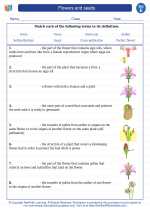Flowers and seeds -> organic matter
Organic Matter
Organic matter refers to the material that is derived from the remains of living organisms, such as plants and animals. It is composed of complex organic compounds containing carbon, hydrogen, oxygen, nitrogen, and other elements. Organic matter plays a critical role in the environment and is essential for sustaining life. Here are some key points to help you understand organic matter:
Composition of Organic Matter
Organic matter is made up of a variety of compounds, including carbohydrates, lipids, proteins, and nucleic acids. These compounds are essential for the growth and development of living organisms.
Importance of Organic Matter
Organic matter is crucial for maintaining soil fertility and structure. It provides nutrients for plants, helps retain moisture in the soil, and supports the growth of beneficial microorganisms. Additionally, organic matter plays a vital role in the carbon and nitrogen cycles, influencing the overall balance of these elements in the environment.
Formation of Organic Matter
Organic matter is formed through the decomposition of organic materials by microorganisms. This process involves the breakdown of complex organic compounds into simpler forms that can be utilized by other organisms. Additionally, the accumulation of organic matter in sedimentary layers over time can lead to the formation of fossil fuels such as coal, oil, and natural gas.
Human Impact on Organic Matter
Human activities, such as deforestation, agricultural practices, and industrial processes, can significantly impact the amount and quality of organic matter in the environment. Understanding the importance of organic matter and implementing sustainable practices is crucial for preserving the health of ecosystems and maintaining a balance in the natural environment.
Study Guide
- What are the main elements found in organic matter?
- Explain the role of organic matter in soil fertility.
- Describe the process involved in the formation of organic matter.
- How do human activities influence organic matter in the environment?
Understanding organic matter and its significance in the environment is essential for comprehending the interconnectedness of living organisms and the natural world.
[Organic Matter] Related Worksheets and Study Guides:
.◂Science Worksheets and Study Guides Fifth Grade. Flowers and seeds
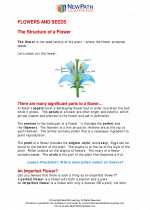
 Activity Lesson
Activity Lesson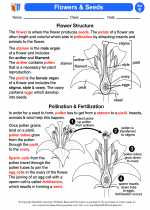
 Worksheet/Answer key
Worksheet/Answer key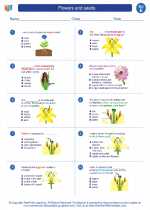
 Worksheet/Answer key
Worksheet/Answer key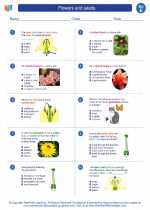
 Worksheet/Answer key
Worksheet/Answer key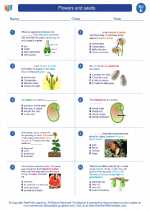
 Worksheet/Answer key
Worksheet/Answer key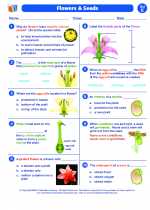
 Vocabulary/Answer key
Vocabulary/Answer key
 Vocabulary/Answer key
Vocabulary/Answer key